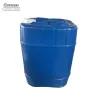What is a Geotube, and how is it used for erosion control and sediment dewatering?
Geotubes, also known as geotextile tubes or geotextile containers, are innovative and versatile solutions widely used in civil engineering and environmental applications. These tubular structures are constructed from high-strength, permeable geotextile fabric, which allows water to pass through while retaining soil, sand, or other fill materials. Their flexibility, cost-effectiveness, and ease of installation make them a preferred choice for various projects.

Erosion Control with Geotubes
Understanding Erosion
Erosion is a natural process that involves the gradual displacement of soil or rock due to natural elements such as water, wind, and ice. However, human activities, including construction and deforestation, have exacerbated erosion, leading to environmental degradation and the loss of valuable land.
The Role of Geotubes in Erosion Control
Geotubes play a pivotal role in mitigating erosion by acting as durable barriers against soil movement and sediment runoff. When properly installed, they stabilize shorelines, riverbanks, and coastal areas, preventing further erosion and protecting valuable ecosystems.
Geotube Installation Process
To maximize the effectiveness of geotubes for erosion control, a strategic installation process is essential. The steps involve site assessment, selection of appropriate geotextile fabric, and precise placement of geotubes in the targeted areas. The tubes are often filled with locally sourced materials, which makes them an environmentally friendly solution.
Sediment Dewatering with Geotubes
Sediment Accumulation: A Concern
Sediment accumulation in bodies of water can lead to a range of environmental issues, including reduced water quality, disruption of aquatic habitats, and increased risk of flooding. Effective sediment dewatering is crucial to maintain the ecological balance of water bodies.
How Geotubes Facilitate Sediment Dewatering
Geotubes offer an efficient and environmentally conscious solution for sediment dewatering. They can be placed in retention ponds, lagoons, or other water bodies to contain and dewater the accumulated sediment. As water passes through the geotextile fabric, the solid particles are retained within the tube, while clarified water is released.
Advantages of Geotube Dewatering
Geotube sediment dewatering presents several advantages over traditional methods. Firstly, it reduces the need for costly dredging operations, minimizing disruption to aquatic ecosystems. Secondly, the dewatered sediment can be repurposed for land reclamation or other beneficial applications, reducing waste and promoting sustainable practices.
Geotube Applications Across Industries
Civil Engineering
In the field of civil engineering, geotubes find extensive use in shoreline protection, slope stabilization, and construction site dewatering. Their ability to withstand various environmental conditions and provide long-term stability makes them indispensable for infrastructure projects.
Explore more:What are the disadvantages of geotextile fabric?
Which innovative techniques make coil coating aluminium eco-friendly?
What are large headstones called?
Which 15mm hot rolled thread bar offers the best price for a confident purchase?
Choosing the Right Faucet for Hospitals: A Comprehensive Guide
Unleashing the Power of Aluminum Composite Panels
Trendy 300x300 Polished Ceramic Mosaic Tiles: Aesthetic Marvel!
Environmental Remediation
Geotubes play a vital role in environmental remediation efforts. They are employed to contain and remove contaminated sediments, facilitating the cleanup of hazardous waste sites and promoting ecological restoration.
Agriculture and Land Reclamation
For agricultural applications, geotubes are utilized in irrigation systems and land reclamation projects. They aid in water management, soil stabilization, and improving crop yields, contributing to sustainable agriculture practices.
Conclusion
In conclusion, geotubes offer a multitude of benefits in erosion control and sediment dewatering applications. Their versatility, durability, and eco-friendly nature make them a sought-after choice for engineers, environmentalists, and farmers alike. By understanding the significance of geotubes and their applications, we can take proactive steps to protect our environment and ensure a sustainable future.
Welcome to contact EcoGeoX to discuss your projects and get more information of geotubes.
More pipe fitting knowledge:
Drainage Pipes: Efficient Water Management Solution
The Difference Between Corrugated Metal Culvert and Plastic Corrugated Pipe
Explore more:What color quartz is most valuable?
Mastering Container Camps: Unveiling Engineering's Best
What is the best state for container homes?
Ultimate Guide: Choosing the Best Tempered Glass Refrigerator Shelf & FAQs
How do you install skirting clips?
Why should I choose 3-ply Butyl Rubber Pipeline Inner Tape for my purchase?
Vinyl vs Tile: Choosing the Perfect Flooring










